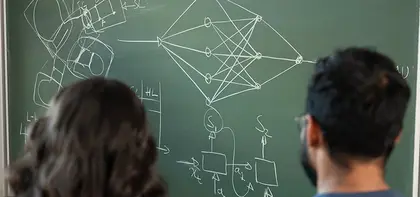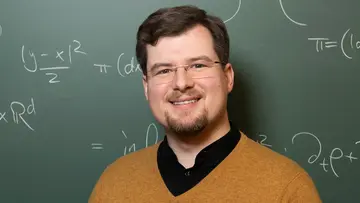
Research
The interplay between analysis and probability has always been very fruitful and has led to numerous advancements in both fields and applications. In this group, we aim to use probabilistic and variational techniques to better understand nonlinear partial differential equations, with applications in kinetic theory, statistical physics, materials science and quantum mechanics.
The projects we are working on are related to a series of current and highly active lines of research: optimal transportation, singular stochastic PDEs, effective equations, pattern formation problems, and density functional theory.
These diverse projects, upon closer inspection, share some common features:
- ideas from regularity theory play a crucial role;
- nonlocal interactions are driving mechanisms;
- the analysis of continuum models is combined with probabilistic tools and thinking.
Quite often, very few and simple basic mechanisms can lead to a rich class of complex phenomena, whose description involves interesting mathematics.
